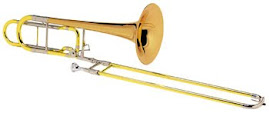
By Andrew McGinn, Staff Writer
5:00 PM Friday, October 16, 2009
SPRINGFIELD — If you think being blue collar during a recession is tough, try wearing a starched white collar.
Even during good times, classical musicians are about as crazy-desperate for work as Berlioz looking for an opium fix.
“We had 31 applicants and we had inquiries from Spain and Japan,” said Peter Stafford Wilson, music director of the Springfield Symphony Orchestra.
Make that 31 applicants for one lonely tuba opening.
The symphony opened its 2009-10 season on Oct. 3 with a new principal tuba player (plus a new principal trombonist), but how it got there is one for the story books.
“There’s only one tuba in an orchestra,” Wilson explained recently, “and when those chairs come open, it’s a rarity.”
So musicians go where the work is — apparently even if it means crossing an ocean.
“They train all their lives to play this classical music, and they don’t get the opportunity to do it nearly enough,” said David Deitrick, the symphony’s executive director.
Still, that’s one heck of a commute for a part-time job.
The SSO isn’t a full-time job — and if it was, Mozart would need to make room in his pauper’s grave for the musicians.

“If they played every service,” Wilson said, “they’d still make less than $3,000.”
Even after the SSO explained that to them, plus informed the overseas applicants that it wouldn’t help with securing visas, they were still interested in auditioning.
“Are these people for real?” Wilson said. “Do they know what they’re getting into?
“You’re flattered to a point, then you think, ‘Wait a minute.’ ”
The SSO ended up auditioning only five regional candidates in September.
Out of those, Thomas Ricer, a Cincinnati native who’s finishing his doctorate at the Eastman School of Music in Rochester, N.Y., was selected as the new principal (well, only) tubist.
What’s even more bizarre about the whole thing is that the SSO only mentioned the opening on its own Web site and on a tuba blog.

“It’s a testimony to the way the Internet is getting the word out,” Wilson said.
It’s also a testimony to the growing reputation of the Springfield Symphony Orchestra.
“Sometimes we don’t always appreciate fully what a great thing we have,” Deitrick said. “It’s nice to see that people around the country do appreciate it.”
Two years ago, the SSO advertised nationally for the first time when it had several principal chair openings.
For the principal flute opening alone, 18 flute players from all over (California, Florida, Boston) showed up to audition.
“They were all saying, ‘This orchestra has a good reputation. It’s worth it for me to come here and lose money for a couple of years,’ ” Wilson said. “I’d like to build a little more stability here.”
Still ...
“It’s quite humbling for us,” he said.





































